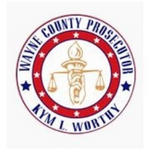Kansas County & District Attorneys Association’s Best Practices Committee Overview

The Committee: The KCDAA’s Best Practices Committee has 20 members, both elected district attorneys and assistant prosecutors representing small, medium and large jurisdictions from different parts of the state. The committee meets in person at least four times per year and corresponds over email or by conference calls in the intervening months. For an overview of the committee, click here.
Read More




